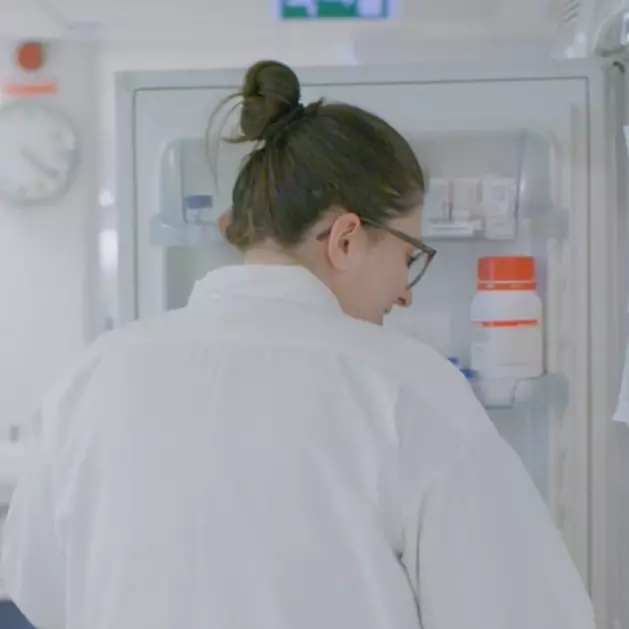Ken Honek, PhD in Biotechnology, works on constructing the proteins that form the basis for BioArctic’s future drug candidates.
What makes BioArctic stand out as a workplace?
“I have a background in academic research, and one major difference is that at BioArctic, we are more focused on a specific end product for our work: revolutionary drugs against neurodegenerative disorders. We are extremely humble in our efforts to solve scientific challenges, and it is easy for us to collaborate both internally and externally. The relationships with both university research groups and our partners in the global pharma industry are outstanding, which creates the conditions to be able to break new ground in an extremely complex scientific field.”
What is the main reason you are happy about going to work in the mornings?
“Simply put, I want to make a difference for all the patients who currently do not have access to an optimal treatment for their disease. It’s an enormously strong driver. Moreover, I’m highly inquisitive and curious—if I start an experiment that runs overnight, I want to hurry back to work the next morning to read off the results.”
What’s the best thing about BioArctic as an employer?
“It’s a company on the absolute leading edge of research, with a strong focus on achieving concrete goals: creating new drugs that can help patients. For us, the sky is the limit, and our managers are always focused on seeing that we have the best conditions for pursuing our projects. One part of this is all the tangible efforts that go into ensuring that staff are doing well both physically and mentally.”
What do BioArctic’s core values mean to you in your daily work?
“The core values are easy to assimilate, since they fit well with my own core values as regards life in general. In certain contexts, we use them as a tangible tool for becoming just a little bit better—during our performance reviews, for example, which are built around the values of respect, engagement, collaboration and responsibility. We do not refer to our core values on a daily basis, though, perhaps because they’re already in our bones.

